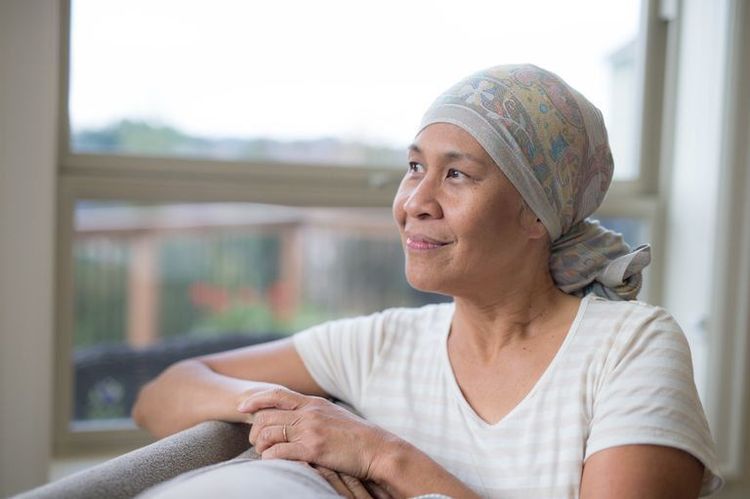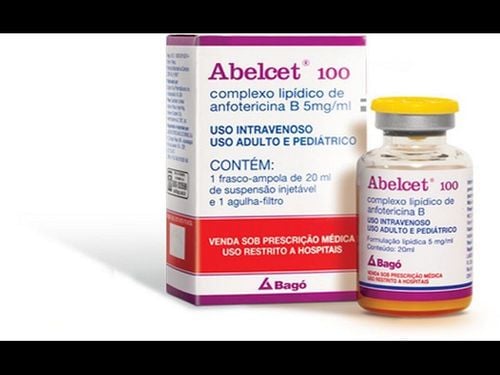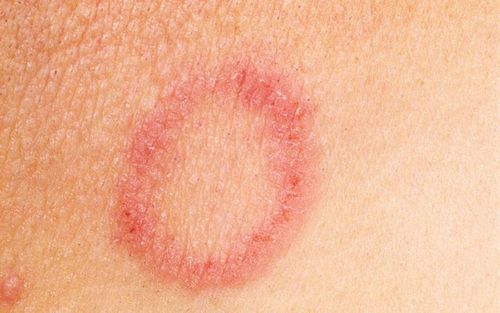This is an automatically translated article.
The article was professionally consulted by Specialist Doctor I Le Thi Thu Hang - Dermatologist - Department of Medical Examination & Internal Medicine, Vinmec Hai Phong International General HospitalAnyone can get a fungal infection, even if the person is otherwise healthy. Fungi are common in the environment and when people breathe in or come in contact with fungal spores every day but don't get sick. However, in people with weakened immune systems, these fungi are more likely to cause infections.
1. Some facts about fungal infections
Fungi are microorganisms with a true nucleus and cell wall, which may consist of small and barely visible spots in the air until the fungus has grown larger. Fungi are all around us and usually don't cause any problems. However, it will easily cause infections in people with weak immune systems.Infections that occur due to a weakened immune system are called opportunistic infections (both bacteria, viruses, and fungi occur). The cause of opportunistic infections is people with fungal infections that affect the immune system, such as people with HIV/AIDS, or taking medications such as corticosteroids, cancer chemotherapy, etc.
When feeling weak immune system should be aware that fungal infections can occur. Understanding and recognizing the disease early will help prevent serious complications.
People at high risk of fungal infections include:
2. Patient is hospitalized
Even though you're in the hospital for treatment, you may be more likely to get an infection while you're there. If you're in the hospital because of an injury or illness, you're at risk for a fungal infection, especially if you're very sick or have a weak immune system. These types of infections are often referred to as healthcare-associated infections (HAIs).Some things to know about fungal infections:
Fungal infections can range from mild to severe and can sometimes be life-threatening. Some patients have mild fungal infections that can cause a rash, but others can be fatal, such as fungal pneumonia. Lifesaving devices such as central venous catheters can increase the risk of fungal infections, possibly even fungal blood infections. Fungi can enter through cuts, wounds, and burns. Preventing fungal infections in hospitals is difficult, because fungi are a natural part of the environment. They live in the air, trees and other objects. However, there can be several ways to reduce the risk of getting a fungal infection in the hospital:
Learn about fungal infections, there are many different types of fungi. Learning them will make it possible to recognize early symptoms and possibly prevent serious illness. Use prescription medications as prescribed by your doctor. Keep your hands clean at all times.

3. Organ transplant patient
Transplant patients have a higher chance of getting an infection because anti-rejection drugs can help the body accept the new organ by lowering the immune system's response, but it also exposes the body to a higher risk of fungal infections. than.Some things to know about fungal infections:
Fungal infections are common in some types of implants. Experts say that fungal infections are most common in patients with small intestine transplants, followed by lung, liver, and heart transplant patients. After the transplant, you need to stay in the hospital for treatment for a long time. That is considered an increased risk of fungal infections. Fungal infections can occur at any time after surgery. It can be days, weeks, months or years after transplant surgery. Certain fungi are common in organ transplant patients. The most common are invasive candidiasis, followed by aspergillosis and cryptococcosis, but other types of fungal infections are also possible. For lung transplant patients, aspergillosis is the most common. To prevent fungal infections after organ transplantation, it is first necessary to learn about fungi so that symptoms of the disease can be detected early. Besides, it is possible to use antifungal drugs and protect the patient in the best environmental conditions (avoid dusty areas, poultry areas, ...)
4. Stem cell transplant patient
Stem cell transplant patients are at risk for fungal infections because stem cell transplants that destroy and rebuild the immune system are favorable factors for fungal growth.Some things to know about fungal infections :
A transplant using stem cells from a donor increases the risk of fungal infections more than a transplant using your own stem cells. Chemotherapy and radiation therapy lower the white blood cell count, and while recovering from a transplant causes the white blood cell count to become very low. This makes it difficult for the body to fight off infections, including fungal infections. If you receive stem cells from a donor, the transplanted stem cells can attack your body. Then steroids must be used to treat the symptoms and will increase the risk of fungal infections. Some fungi are common in stem cell transplant patients. Aspergillosis is the most common fungal infection in stem cell transplant patients, followed by Candida infection and muco mycosis, but other fungal infections can also occur. To prevent fungal infections after stem cell transplantation, in addition to understanding the fungus to detect symptoms early, physicians should test patients for early infections to detect fungal infections such as aspergillosis before symptoms appear. presently. At the same time, additional antifungal agents can be used.
5. Cancer patients
Cancer patients are at risk for fungal infections because chemotherapy and radiation therapy cause many changes in the body (the biggest change being a weakening of the immune system) increasing the likelihood of infections including fungal infections.Some things to know about fungal infections:
Chemotherapy and radiation therapy lower the white blood cell count. When that happens, it may be difficult to fight off infections and fungal infections. The type of cancer can affect the risk of the disease. If you have a blood cancer like leukemia or myeloma, you have a higher risk of getting a fungal infection than people with other types of cancer. The risk of infection may vary based on the intensity of an individual patient's chemotherapy. Some types of cancer may require stronger chemotherapy drugs than others, especially blood cancers. This is sometimes called aggressive chemotherapy. Aggressive chemotherapy weakens the immune system and can put you at risk for fungal infections. To prevent fungal infections in cancer patients, it's first important to learn about fungi so that symptoms of the disease can be detected early. Besides, it is possible to use antifungal drugs and protect the patient in the best environmental conditions (avoid dusty areas, poultry areas, ...)

6. People who take drugs that weaken the immune system
Medication use can include side effects that can weaken your immune system, putting you at risk for fungal infections. Specifically, corticosteroid inhibitors (medications that treat conditions including arthritis, asthma, allergic reactions, and autoimmune diseases like lupus, sarcoidosis, or inflammatory bowel disease) and TNFs (drugs to treat autoimmune diseases) immune system diseases such as rheumatoid arthritis, psoriasis, inflammatory bowel disease and also tumor necrosis factor) are two drugs that can increase your chances of getting a fungal infection.7. People with HIV/AIDS
People living with HIV/AIDS have weak immune systems so there will be some health challenges, which is avoiding infection. Fungal infections are opportunistic infections that often affect people with weakened immune systems, so people with HIV are more likely to contract certain types of fungi, such as cryptococcosis, coccidioidomycosis, histoplasmosis, and pneumocystis pneumonia (PCP).
Please dial HOTLINE for more information or register for an appointment HERE. Download MyVinmec app to make appointments faster and to manage your bookings easily.
Reference source: cdc.gov













